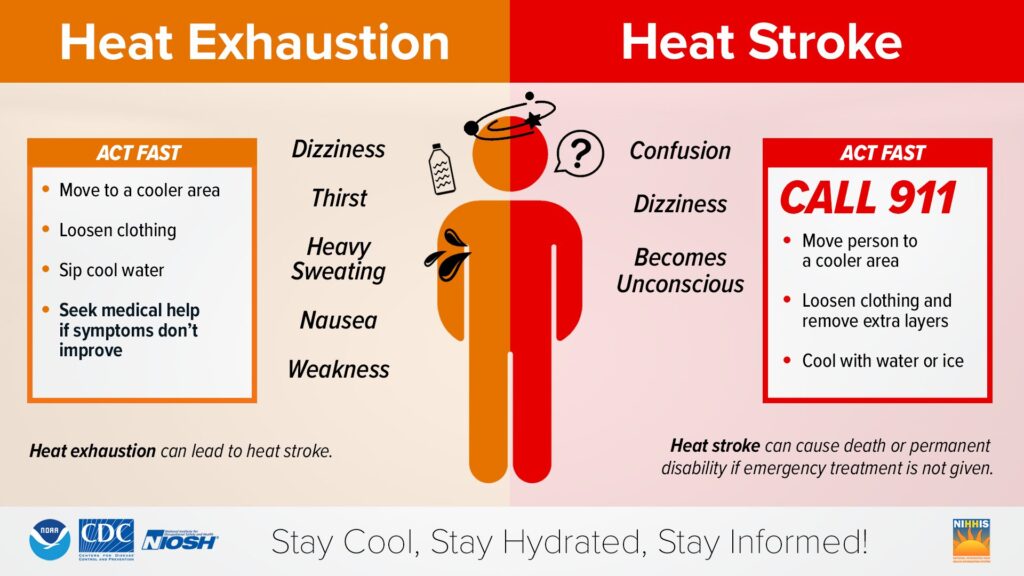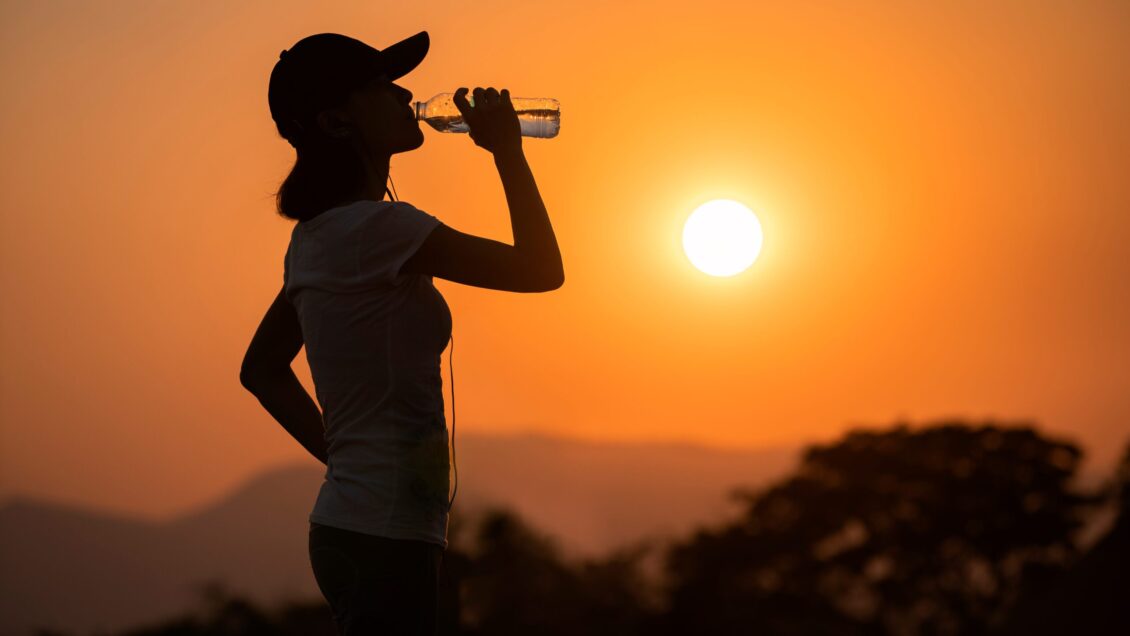With the Summer season officially underway and temperatures heading into the 90s, it’s important to be prepared for the heat, particularly when heading outdoors for activities.
Extreme heat is a period of high heat and humidity with temperatures above 90 degrees for at least two to three days. With extreme heat, your body must work extra hard to maintain a normal temperature. Extreme heat is responsible for the highest number of annual deaths among all weather-related hazards.
Consider the following when spending time outdoors when temperatures are high:
- Wear loose-fitting, lightweight, light-colored clothing and wear a hat to protect your face
- Drink plenty of fluids to stay hydrated
- If you’re outside, find some shade to take relief from the sun
- Avoid high-energy activities or work outdoors, during midday heat, if possible
- Apply sunscreen generously and reapply every two hours to avoid sunburn
- Never leave people or pets in a closed car on a warm day
- Consider pet safety. If they are outside, make sure they have plenty of cool water and access to comfortable shade. Asphalt and dark pavement can be very hot on your pet’s feet.
In addition, it’s important to know the signs of heat-related illnesses, such as heat exhaustion or heat stroke, and how to respond.

Heat exhaustion
Signs of heat exhaustion include heavy sweating, paleness, muscle cramps, tiredness, weakness, fast or weak pulse, dizziness, headache, fainting, nausea and vomiting.
If you have signs of heat exhaustion, cool down by moving to a cooler location, removing excess clothing and taking sips of sports drinks or water. Call your healthcare provider if symptoms get worse or last more than an hour.
Heat stroke
Signs of heat stroke are:
- Extremely high body temperature (above 103 degrees F) taken orally
- Red, hot and dry skin with no sweat
- Rapid, strong pulse
- Dizziness, confusion or unconsciousness
If you suspect heat stroke, call 911 or get the person to a hospital immediately. Cool down with whatever methods are available until medical help arrives. Do not give the person anything to drink.
For more information on how to prevent or respond to heat-related illnesses, visit Ready.gov/heat and the National Weather Service Heat Safety tips.

